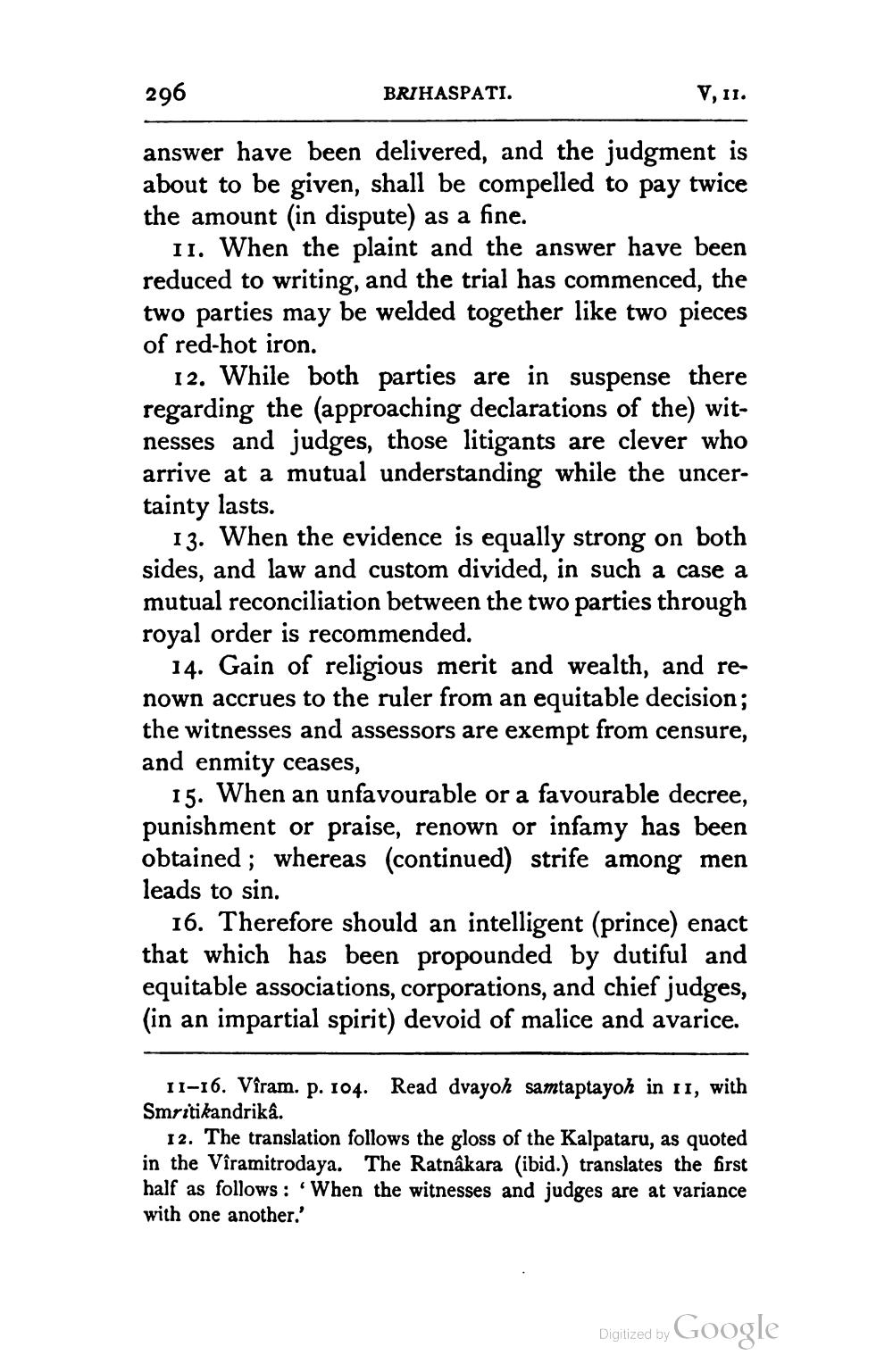________________
296
BRIHASPATI.
V, 11.
answer have been delivered, and the judgment is about to be given, shall be compelled to pay twice the amount (in dispute) as a fine.
11. When the plaint and the answer have been reduced to writing, and the trial has commenced, the two parties may be welded together like two pieces of red-hot iron.
12. While both parties are in suspense there regarding the (approaching declarations of the) witnesses and judges, those litigants are clever who arrive at a mutual understanding while the uncertainty lasts.
13. When the evidence is equally strong on both sides, and law and custom divided, in such a case a mutual reconciliation between the two parties through royal order is recommended.
14. Gain of religious merit and wealth, and renown accrues to the ruler from an equitable decision; the witnesses and assessors are exempt from censure, and enmity ceases,
15. When an unfavourable or a favourable decree, punishment or praise, renown or infamy has been obtained; whereas (continued) strife among men leads to sin.
16. Therefore should an intelligent (prince) enact that which has been propounded by dutiful and equitable associations, corporations, and chief judges, (in an impartial spirit) devoid of malice and avarice.
11–16. Viram. p. 104. Read dvayoh samtaptayoh in 11, with Smritikandrika.
12. The translation follows the gloss of the Kalpataru, as quoted in the Vîramitrodaya. The Ratnakara (ibid.) translates the first half as follows: When the witnesses and judges are at variance with one another.'
Digitized by Google




